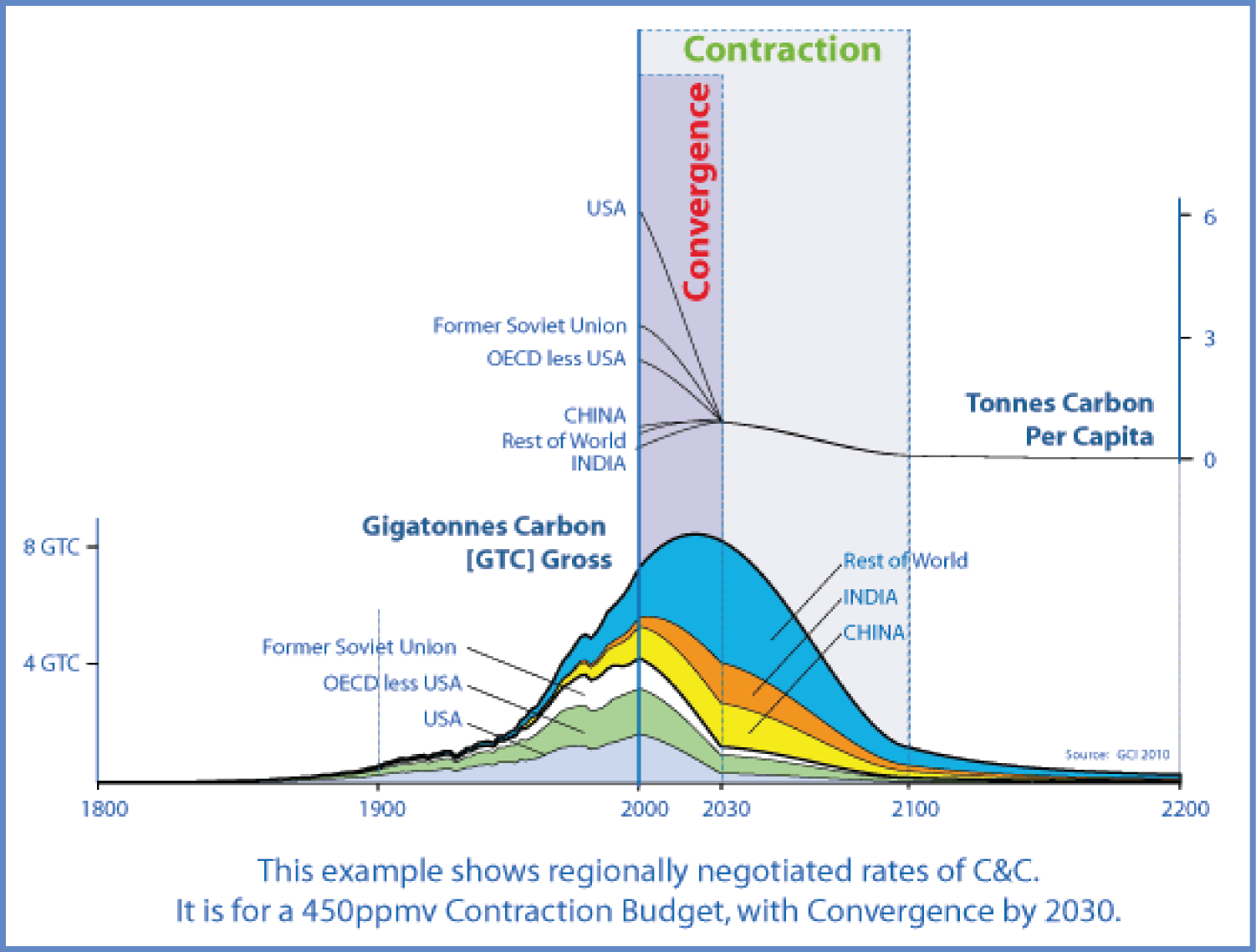Dear Aubrey
Signed
Regards
Jo
Jo Abbess MSc
Knowledge Service Intern
Energy Institute
61 New Cavendish Street
London W1G 7AR, UKJo has been one of the smartest and most prolific C&C supporters over the years.
She has an extraordinarily active and effective web-site.
Jo Abbess picks out the C&C dimension of COP-17 in Durban here, on this prolific and very focused web-site. This article was commissioned by Damian Carrington of the Guardian but refused by him for publication with no reasons given.Jo Abbess' web-site - Energy Change for Climate Control -
has a wealth of analysis and comment related to 'Keeping the Climate Stable'.
Jo Abbess
Contraction & Convergence
Posted on March 23rd, 2012

I think that within a short space of time, it will become admitted, even by Friedman-onomists (and other assorted Freak-onomists) that marginal pricing strategies on high carbon energy are not producing a major shift to a low carbon energy economy. Nobody wants to buy carbon permits, so they will all duck the quotas, and buck the system.
The prevailing economic conditions, caused by a collapse in wealth and the onset of both climate change and fossil fuel depletion, and their respective impacts on food and energy production, are creating a volatility in the costs of energy – mostly in the buoyancy direction. Which is fine for anybody trading in energy industry stock, but not for the rest of us, and is especially limiting for any attempts to price greenhouse gas emissions.
Policies to create a carbon “market” by implementing varieties of “Cap and Trade”, and the so-called Clean Development Mechanism – a “flexible” approach permitted under Article 12 of the Kyoto Protocol, are showing a residual inefficacy – that means they are failing – an inability to cause widespread change.
That would be OK if we only expect carbon markets to provide some equilibrium in disparate progress towards carbon emissions reduction. If carbon markets were recognised as only being able to enable a small tranche of the overall changes required.
Carbon trading can be a useful mechanism if it’s used as a vehicle for “technology transfer”. By that, I don’t mean selling shale gas technology to China, Oman or Saudi, but creating a flow of useful Renewable Energy technology from industrialised world to under-developed world.
The world’s poorest, and lowest emitters, should be entitled to gain value from their under-consumption, by “selling” emissions credits to the world’s highest emitters, whilst the rich world de-carbonises. This “offsetting” is argued by most people, but it can never be a major factor in the global changeover to low carbon energy – only a mobiliser.
What the world needs to do – all the players – including Civil Society, consumer organisations, non-governmental organisations, energy industry, energy-producing nations, governments and international institutions, is to agree a treaty of Mutually Agreed Decarbonisation – through a combination of the explicit financing of renewable energy and energy demand management – machine and process efficiency, conservation, insulation, energy balancing through storage. Built into this strategy has to be an expectation of a different future from the energy-wasteful, high carbon energy today – a pre-requisite for all licenced commercial energy activities.
Even simple game-playing analysis reveals that punishing bad carbon behaviour through monetary means is not going to work to bring about a low carbon world – there is too much dependency on carbon, and so too many forces that will act to compromise the pricing strategy – whatever form it takes.
Creating a slight imbalance between the relative costs of clean and dirty energy cannot impact the energy economy – as high carbon energy is endemic/ubiquitous in industrialised countries – oil, coal and gas are the pillars of modern consumer civilsation.
Only strategies that raise up the good behavour of the move to a low carbon economy and the concomitant lower greenhouse gas emissions – renewables and energy demand management – will succeed in displacing high embedded carbon from economic flow, stocks and securities.
Contraction and Convergence, as formulated by the Global Commons Institute under the leadership of Aubrey Meyer is the recipe that everyone can adopt as a framework without compromising their national, corporate and personal ambitions, and the hook on which every government can pin their renewable energy and energy management promotion strategies upon.
Let’s look at the example of another form of pollution – tobacco smoking. Trade rules forbade the banning of sales of cigarettes, and making smoking more expensive hasn’t stopped people doing it. It is clear that the correct solution is the banning of the manufacture of tobacco products – but it would take a brave regulator to even suggest that because of the vested interests. Health education arguments have helped many to quit, and so have cigarette substitutes – but it would have been useful to have a positive alternative to offer to replace nicotine in peoples’ lives of habit.
The carbon habit is a much bigger problem than smoking – and it seems clear that trying to impose economic instruments such as prices and taxes is not going to touch it. In this case, we should not be defeated by climate change damages, but overcome evil with good.



